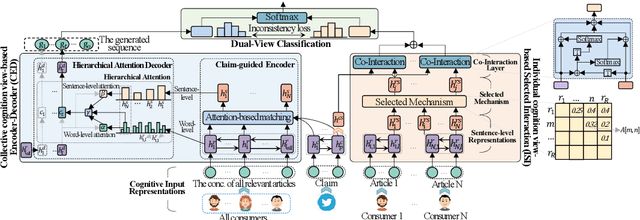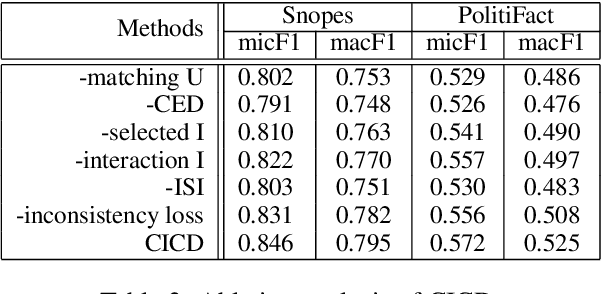Unified Dual-view Cognitive Model for Interpretable Claim Verification
Paper and Code
May 20, 2021



Recent studies constructing direct interactions between the claim and each single user response (a comment or a relevant article) to capture evidence have shown remarkable success in interpretable claim verification. Owing to different single responses convey different cognition of individual users (i.e., audiences), the captured evidence belongs to the perspective of individual cognition. However, individuals' cognition of social things is not always able to truly reflect the objective. There may be one-sided or biased semantics in their opinions on a claim. The captured evidence correspondingly contains some unobjective and biased evidence fragments, deteriorating task performance. In this paper, we propose a Dual-view model based on the views of Collective and Individual Cognition (CICD) for interpretable claim verification. From the view of the collective cognition, we not only capture the word-level semantics based on individual users, but also focus on sentence-level semantics (i.e., the overall responses) among all users and adjust the proportion between them to generate global evidence. From the view of individual cognition, we select the top-$k$ articles with high degree of difference and interact with the claim to explore the local key evidence fragments. To weaken the bias of individual cognition-view evidence, we devise inconsistent loss to suppress the divergence between global and local evidence for strengthening the consistent shared evidence between the both. Experiments on three benchmark datasets confirm that CICD achieves state-of-the-art performance.
 Add to Chrome
Add to Chrome Add to Firefox
Add to Firefox Add to Edge
Add to Edge